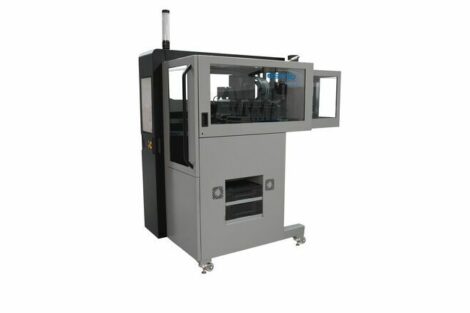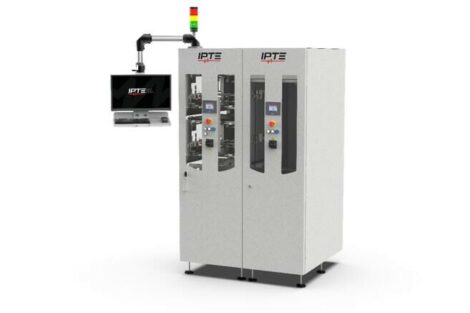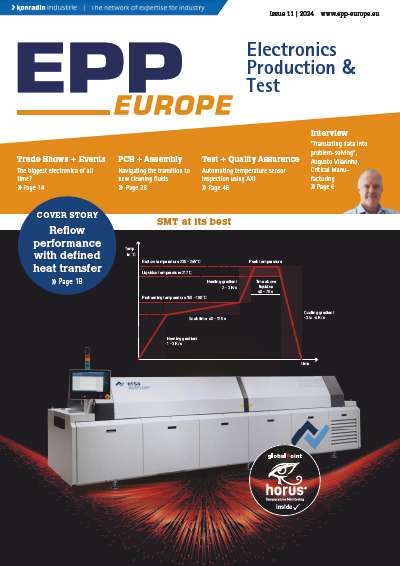The M6241 from Advantest (Europe) GmbH is a dynamic test handler for memory devices such as DDR2/3-SDRAM. It offers parallel test for up to 512 devices and boasts a throughput of 20,000 units per hour. Its compact design and new features, including an advanced heating mechanism to increase thermal stability, combine to offer significant cost reductions for volume production of today’s multi-purpose memory devices. Furthermore, with improved device transfer mechanisms, the test handler slashes test process time and jam rates, enabling more efficient testing and greater yields.
Continued high rates of growth are predicted in the multipurpose memory market, which includes DDR2-SDRAM devices used in personal computers. Such expansion is spurred by sales of Windows Vista, with full-scale high-volume production of DDR3-SDRAM also expected in 2008. Demand for multipurpose memory in the consumer electronics sector is growing too, as cellular phone and digital camera functionality advances. Such increases in demand in the DRAM market for multifunctional products at lower prices mean that high-volume manufacturers of DRAM are strongly pressing for lower cost testing.
Through its improved handling and insert mechanisms, the test handler provides efficient device transfer for parallel test of up to 512 units, whilst maintaining the compactness of its predecessor. When used in combination with the company’s T5588 DRAM memory test system, parallelism is doubled, with no greater floor space required than that of its predecessor (M6300). For volume producers of today’s memory devices, this handler represents massive savings in test costs. It is equipped with a new heating mechanism and takes just half the time of conventional models to reach target temperature. The new mechanism also controls temperature fluctuations between devices under test (DUTs), resulting in an improvement to temperature stability of up to 17 %.
An option for the handler offers customers the ability to adjust the DUT layout pitch for differences in load-board designs. This feature allows customers with changing device designs the flexibility to maximize the effective testing of their own products over time. Designed with modularity, the test handler incorporates a new pitch conversion kit mechanism that affords increased test efficiency and extends the life of the system. Previously, the Parallel Attachment for DUT pitch was a fixed mechanism, requiring that the handler be redesigned to accommodate changes in DUT pitch. The new M6241, with its kit mechanism, eliminates this need, giving customers increased flexibility. Recognizing that device interface design greatly impacts the efficiency of device testing, the handler also provides for a quick change-kit conversion between packages. The handler can be run in English, Japanese, Korean and Chinese.
EPP Europe 439
Share:











